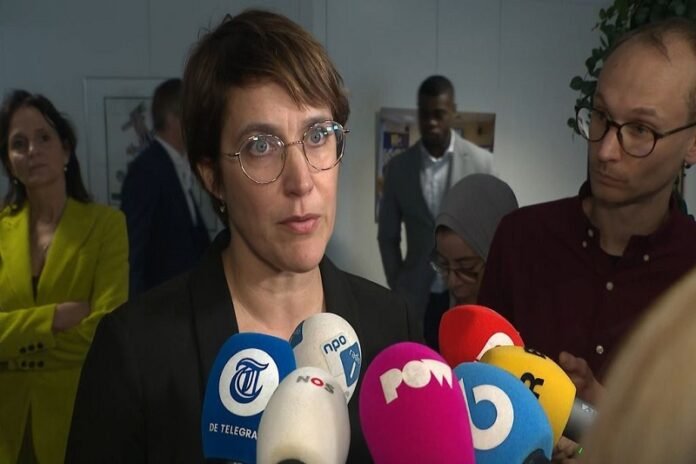In an unexpected political development, Dutch parliamentarians Femke Zeedijk and Rosanne Hertzberger resigned from the parliamentary group of the “National Alliance for Change” (NSC).
This move follows the resignation of State Secretary Achahbar, of Moroccan descent, which sparked widespread controversy over issues of discrimination and antisemitism within the Dutch government.
These developments raise many questions about the depth of the crisis within the party and whether it can be contained, or if it marks the beginning of a broader collapse in the ruling coalition.
The Resignation Crisis: “A Lack of Courtesy” or an Expression of Political Failure?
In her statement, Zeedijk pointed out that her decision to resign was driven by months of frustration over what she described as a “lack of courtesy” in Dutch politics. She emphasized that the parliament had become a stage for provocative media statements, increasing social division, rather than offering real solutions to national problems.
A fundamental question: Does Zeedijk’s resignation reflect a failure in leadership within the NSC?
Rosanne Hertzberger, for her part, also expressed her frustration over the lack of constructive debate on sensitive issues, noting that the current political climate was contributing to deepening polarization within Dutch society.
Achahbar’s Resignation: Signs of Discrimination in Dutch Politics?
The most prominent resignation was that of State Secretary Achahbar, who left his post after the controversy surrounding antisemitism within the government. Zeedijk pointed out that Achahbar’s departure sent a negative message, suggesting that people from non-European backgrounds may not be welcome in the Dutch political arena.
Analysis:
Does Achahbar’s resignation reflect heightened sensitivity to racial diversity?
Or is the crisis purely political, related to disagreements over antisemitism policies?
Zeedijk’s remarks sparked a debate about the lack of “self-reflection” by the Prime Minister and government members on discrimination-related issues, which reveals a deeper challenge in Dutch politics.
Critical Thinking: The Need for Solutions Instead of Escalation
These resignations raise broader questions about how the government deals with issues of discrimination and cultural diversity. Discrimination is not new in Dutch politics, but it has now become more visible with the resignation of prominent figures like Achahbar.
Key question: Can the government balance maintaining social unity while addressing complex issues like antisemitism and racial discrimination?
Political responses so far appear superficial, focusing more on managing the crisis than addressing its root causes.
The Consequences of the Crisis on Dutch Society
The resignations of Zeedijk and Hertzberger, along with Achahbar’s departure, put the government in a difficult position, especially amidst calls for a reevaluation of policies related to cultural diversity and social cohesion.
The most pressing questions:
Will these resignations lead to real changes in government policies?
What role should civil society and the media play in facing these challenges?
Conclusion: A Crisis Requiring Radical Reform
The current crisis reveals the fragility of the Dutch political landscape and the depth of challenges related to discrimination and diversity. Achahbar’s resignation, along with those of Zeedijk and Hertzberger, is merely a signal of the need for a comprehensive review of government policies toward minorities.
The most important question remains: Will the government seize this opportunity to address structural issues? Or will this crisis simply be another chapter in the history of Dutch political crises?


